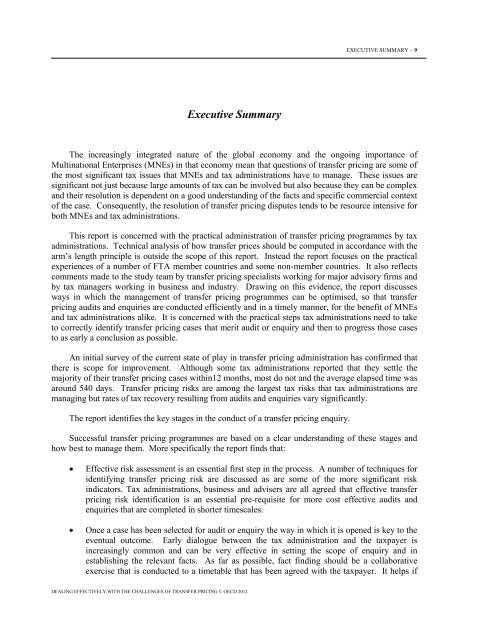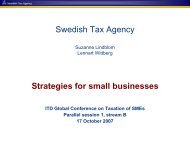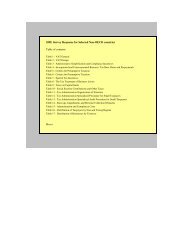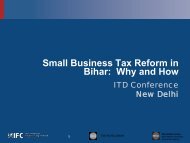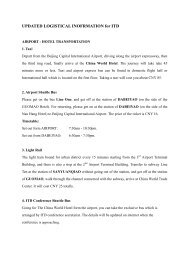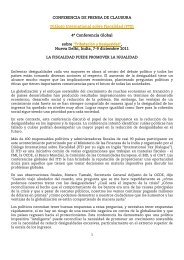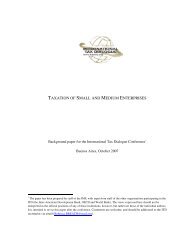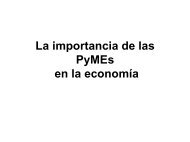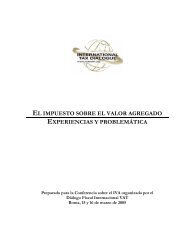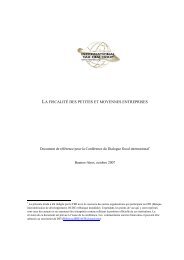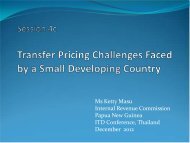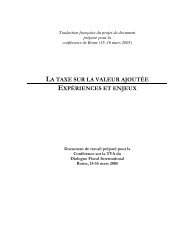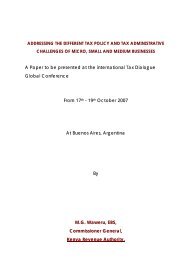Arcotia Hatsidimitris - International Tax Dialogue
Arcotia Hatsidimitris - International Tax Dialogue
Arcotia Hatsidimitris - International Tax Dialogue
You also want an ePaper? Increase the reach of your titles
YUMPU automatically turns print PDFs into web optimized ePapers that Google loves.
EXECUTIVE SUMMARY – 9<br />
Executive Summary<br />
The increasingly integrated nature of the global economy and the ongoing importance of<br />
Multinational Enterprises (MNEs) in that economy mean that questions of transfer pricing are some of<br />
the most significant tax issues that MNEs and tax administrations have to manage. These issues are<br />
significant not just because large amounts of tax can be involved but also because they can be complex<br />
and their resolution is dependent on a good understanding of the facts and specific commercial context<br />
of the case. Consequently, the resolution of transfer pricing disputes tends to be resource intensive for<br />
both MNEs and tax administrations.<br />
This report is concerned with the practical administration of transfer pricing programmes by tax<br />
administrations. Technical analysis of how transfer prices should be computed in accordance with the<br />
arm’s length principle is outside the scope of this report. Instead the report focuses on the practical<br />
experiences of a number of FTA member countries and some non-member countries. It also reflects<br />
comments made to the study team by transfer pricing specialists working for major advisory firms and<br />
by tax managers working in business and industry. Drawing on this evidence, the report discusses<br />
ways in which the management of transfer pricing programmes can be optimised, so that transfer<br />
pricing audits and enquiries are conducted efficiently and in a timely manner, for the benefit of MNEs<br />
and tax administrations alike. It is concerned with the practical steps tax administrations need to take<br />
to correctly identify transfer pricing cases that merit audit or enquiry and then to progress those cases<br />
to as early a conclusion as possible.<br />
An initial survey of the current state of play in transfer pricing administration has confirmed that<br />
there is scope for improvement. Although some tax administrations reported that they settle the<br />
majority of their transfer pricing cases within12 months, most do not and the average elapsed time was<br />
around 540 days. Transfer pricing risks are among the largest tax risks that tax administrations are<br />
managing but rates of tax recovery resulting from audits and enquiries vary significantly.<br />
The report identifies the key stages in the conduct of a transfer pricing enquiry.<br />
Successful transfer pricing programmes are based on a clear understanding of these stages and<br />
how best to manage them. More specifically the report finds that:<br />
• Effective risk assessment is an essential first step in the process. A number of techniques for<br />
identifying transfer pricing risk are discussed as are some of the more significant risk<br />
indicators. <strong>Tax</strong> administrations, business and advisers are all agreed that effective transfer<br />
pricing risk identification is an essential pre-requisite for more cost effective audits and<br />
enquiries that are completed in shorter timescales.<br />
• Once a case has been selected for audit or enquiry the way in which it is opened is key to the<br />
eventual outcome. Early dialogue between the tax administration and the taxpayer is<br />
increasingly common and can be very effective in setting the scope of enquiry and in<br />
establishing the relevant facts. As far as possible, fact finding should be a collaborative<br />
exercise that is conducted to a timetable that has been agreed with the taxpayer. It helps if<br />
DEALING EFFECTIVELY WITH THE CHALLENGES OF TRANSFER PRICING © OECD 2012


